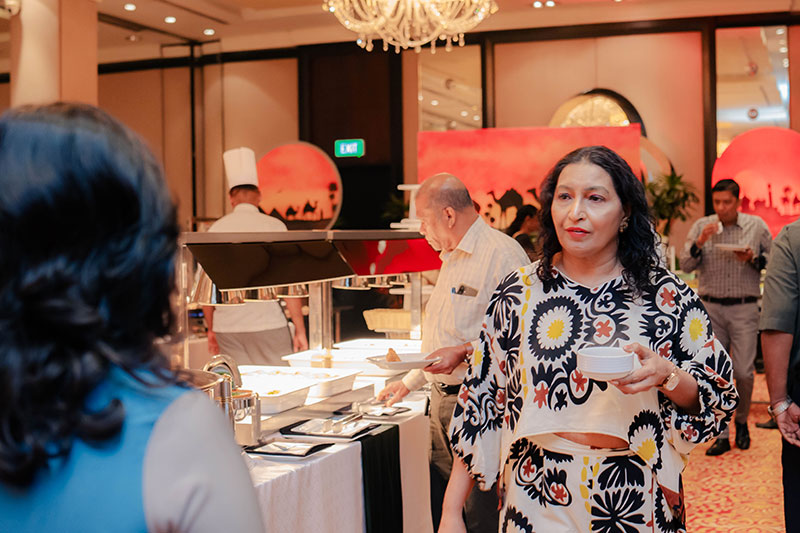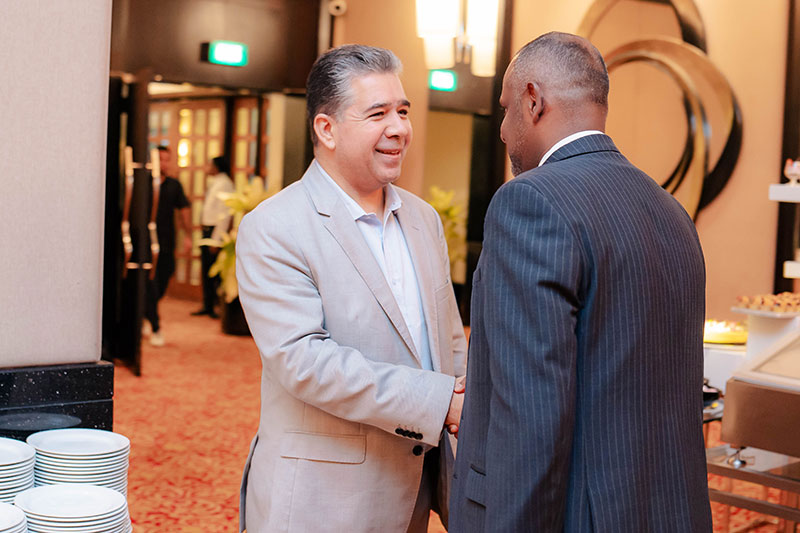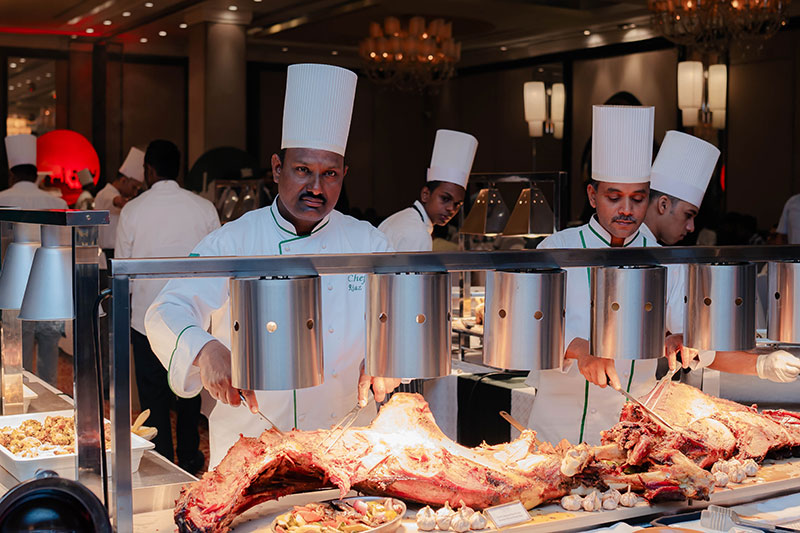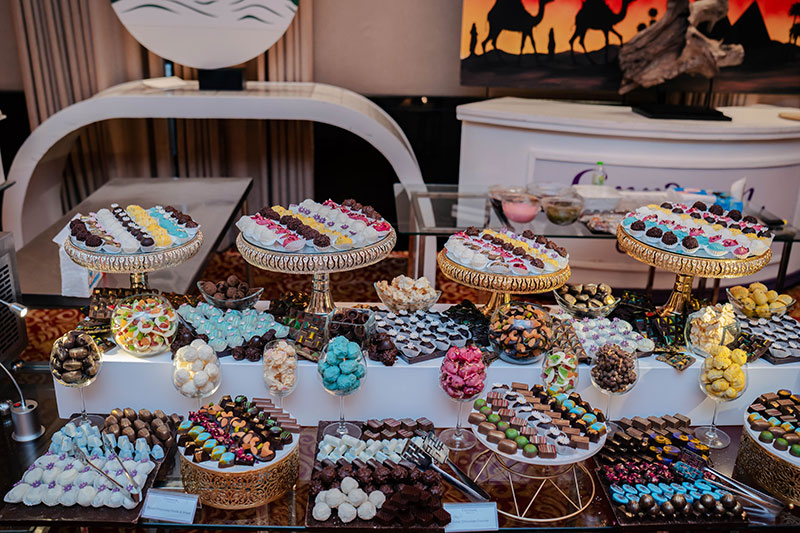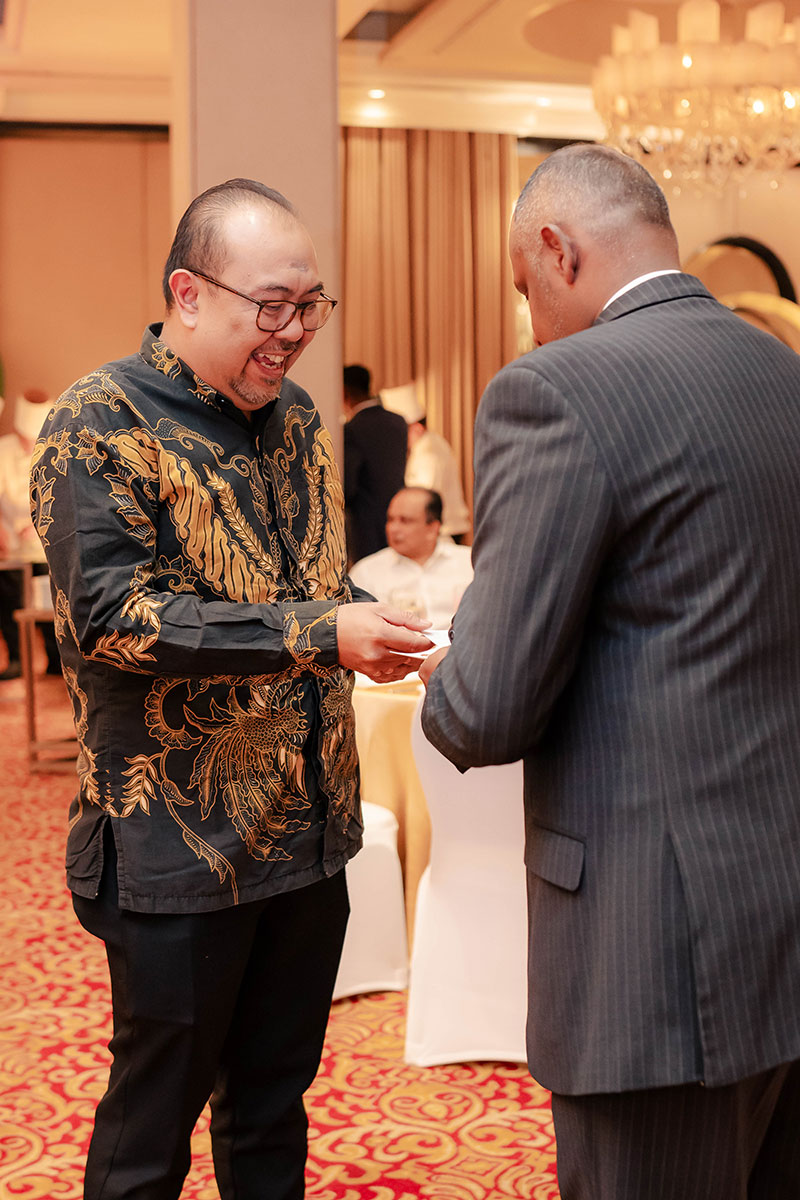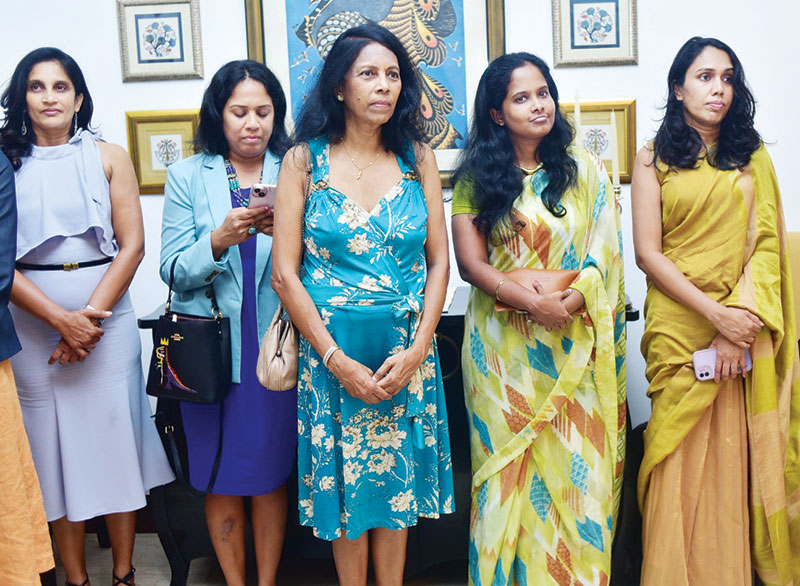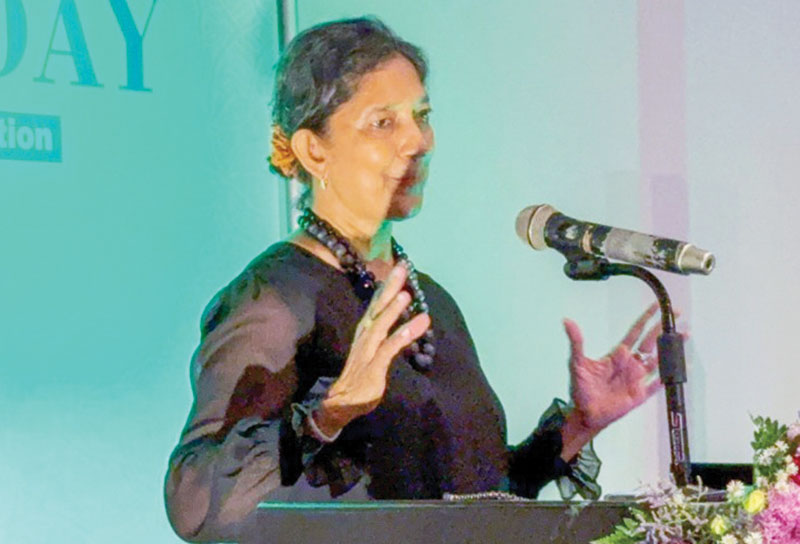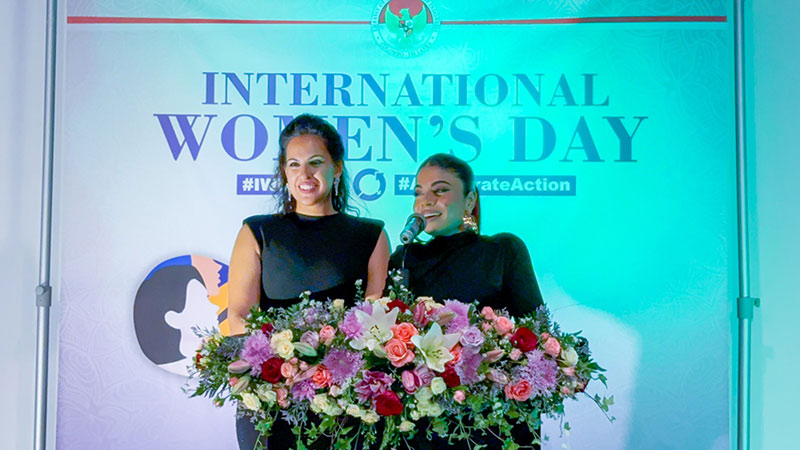Life style
Brewing a different cup of coffee

One of the top ten Arabica varieties of coffee in the world, our own Lak Parakum is now being promoted by the Department of Export Agriculture in all Arabica coffee-growing districts in the island. Plants of this variety are distributed among growers through several coffee nurseries in the upcountry. The coffee rust which ended the island’s coffee romance in British-occupied then Ceylon is given hope for resurgence with the promotion of the new variety.
BY RANDIMA ATTYGALLE
History has it that coffee was introduced to Ceylon in 1503 by the Arab traders from Yemen. However, the planting of coffee as a commercial crop in the island commenced with the Dutch occupancy and continued under the British rule. Planter R.B Butler who had experience in coffee plantations in Jamaica came here in 1837 and introduced methods to yield a better coffee crop. By 1863, the value of coffee imported into Europe from all parts of the world amounted to £270 million, and we were exporting nearly a third of that. By 1870, Sri Lanka’s coffee production peaked with over 275,000 hectares being cultivated, according to the Sri Lanka Export Development Board (EDB) data.
 The colonial Ceylon was among the top coffee producing and exporting nations and a coffee-drinking culture complete with kopi kaday (coffee kiosks) and kopi kele (coffee forests) evolved. Christine Spittel-Wilson’s famous book The Bitter Berry revolves around the ethos of a Ceylonese coffee plantation.
The colonial Ceylon was among the top coffee producing and exporting nations and a coffee-drinking culture complete with kopi kaday (coffee kiosks) and kopi kele (coffee forests) evolved. Christine Spittel-Wilson’s famous book The Bitter Berry revolves around the ethos of a Ceylonese coffee plantation.
Sadly, the coffee rust of 1870 (caused by the fungus Hemileia vastatrix) destroyed all plantations bringing the coffee romance of the country to an end. Although rust-tolerant varieties were later introduced, today coffee is an intercrop with tea and coconut. However, Lak Parakum promoted by the Department of Export Agriculture (DEA), encourages planters to expand their coffee acreage.
Sri Lanka’s coffee cultivation covers around 4,600 hectares and the two main commercially important species locally grown are Arabica coffee (Coffea Arabica) and Robusta Coffee (Coffea canephora). These two main species grown here include several varieties. “While Arabica coffee varieties are recommended for mid and up country areas with an altitude of over 400m (Nuwara Eliya, Kandy, Matale and Badulla), Robusta variety is recommended for mid and low country with an altitude of less than 800m( Kegalle, Kurunegala, Kandy and Matale). These
recommendations are made depending on the temperature variation. While Arabica prefers a temperature of 15-28ºC, Robusta thrives in a temperature of 18-36ºC” says Dr. H.M.P.A Subasinghe, Director (Research), Department of Export Agriculture (DEA).
The global specialty coffee market as the EDB notes, is projected to reach over USD 80 billion by 2025 which offers enormous growth potential for coffee producers. In line with this increasing demand, Sri Lanka’s coffee exports have increased in recent years, growing 84 percent from 2017 to reach nearly USD 355,000 by 2019 according to EDB data. The coffee industry as the EDB notes, has attracted increased investment from the private sector and increased local demand and consumption of locally grown coffee in hotels, restaurants and cafes.
More than 80% the world demand is for Arabica coffee and the requirement is 8.8 million mt, says Dr. Subasinghe. Lak Parakum with its quality parameters stands among the best ten Arabica varieties in the world, he adds.
Even after releasing the new variety Lak Parakum, it did not become popular among farmers due to lower prices offered for coffee. But the Director (Research) of the DEA then, Dr. J.M.Seneviratne initiated collaborations with the authorities at the Nuwara Eliya District Secretariat to popularize the new variety among growers in the Nuwara Eliya District. He also worked with Mr. Kenneth McAlpine, a member of the Specialty Coffee Association (SCA) for the global coffee industry to find the quality parameters of Lak Parakum and found that overall score was 85.5 which is way above the cutoff point for the best coffees which is considered to be 75.”
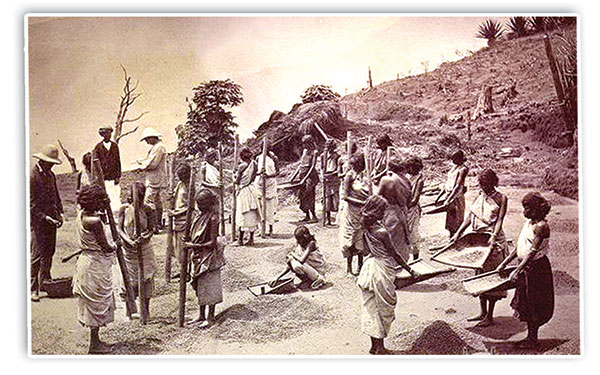
While Lak Parakum is promoted for higher elevations, IMY which is of Robusta variety is also promoted for lower elevations right now. While the domestic coffee consumption is 2,300 mt. our annual production was 2,345 mt. in 2020 according to DEA’s statistics. Our annual export volume was 26.6 mt in 2020. Australia, UAE, USA, Maldives, New Zealand, Chile, UK and Germany are the major buyers of Sri Lankan coffee. The annual coffee import volume was 104.9 mt in 2020.
“Due to immature coffee harvesting and bad processing practices, most importing countries are rejecting our coffee and with the new variety if we can practice timely harvesting and good processing practices, the export potential is very high,” observes Dr. Subasinghe.
Several new measures are now in place to tap a lucrative market for Sri Lankan coffee. Production of planting material with private sector nurseries, awareness programmes for harvesting and processing practices for high quality products, promotion for value addition, introduction of GAP (Good Agricultural Practices) Certification to get premium prices and increasing the coffee extent from 4,600 ha to 5,800 ha and the export volume from 30 mt. to 200 mt by 2025 are among these. Collaborations with the Australian government-funded Market Development Facility for the improvement of the coffee industry are also in place.
Although threats from rust diseases are still prevalent in coffee fields, they can be controlled with good management practices and available control measures, points out Dr. Subasinghe. “Apart from the rust disease, the major pest problem is the coffee berry borer damage. This too can be managed with good crop management practices. While Robusta varieties are highly tolerant for rust, Arabica is medium tolerant.”
Due to the low prices offered for coffee (Rs. 350 to 400 per kilo), many growers had neglected coffee in the last few years, however, currently a kilo of coffee could get Rs. 1,200. “We also offer coffee growers incentives including free planting material, technological assistance for planting, crop management, harvesting, fertilizer application, processing and management of pest and diseases. Subsidies for irrigation facilities and machinery used for post-harvest practices and support for GAP are also offered.”

Managing Director of Kelaneiya & Braemar Estate Maskeliya, Murugiah Balendran, a leading grower of Lak Parakum first experimented with it in 2014. Director (Research) of the DEA then, Dr. J.M.Seneviratne who collected a gene pool from old plants from many areas including Walapane, Ramboda, Galaha and Nilambe offered me mother plants of Lak Parakum and encouraged me to experiment with them,” reflects Balendran who goes onto add that the ‘trial and error’ exercise eventually turned out to be successful. His own estate which was once an exclusive coffee plantation still has coffee trees more than 100 years old.
The senior planter who is now well versed in producing seed stock of Lak Parakum has released about 1,500 kg to nurseries since 2018. “Each kilo of seed could produce 2,000 to 3,000 plants, so a sizeable amount of plants have been generated todate.” Balendran has dedicated four hectares of land to coffee alone today and urge fellow coffee growers to move away from the ‘intercrop mindset’ and allocate more fertile land for the crop. “Many growers plant coffee in vacant land space where largely tea had been removed. However, unless the soil quality is improved, planting coffee in vacant tea and coconut estates won’t do.”
Balendran who also grows several other varieties of coffee including a few Indian ones remarks that there is a notable difference between those and Lak Parakum in terms of the yield, resistance to disease and the texture of beans. “However it will take us another four to five years to show the true potential of it.”
Lack of fertilizer has taken a notable toll on the crop, laments the planter. “At the time of blooming and berries start setting, we need to give some fertilizer. But unfortunately last year our crop was very poor and didn’t match our expectations. Even the seed delivery to DEA and other agents got curtailed to a large extent. Moreover, although I have been supplying coffee seed material from 2018, I have so far not received any significant assistance from any government agency,” remarks Balendran who moots an effective result-oriented incentive scheme for coffee growers.
Photo credit: Murugiah
Balendran, Royal Commonwealth
Society, W.L.H. Skeen & Co.
Life style
Celebration of unity and tradition at Iftar dinner
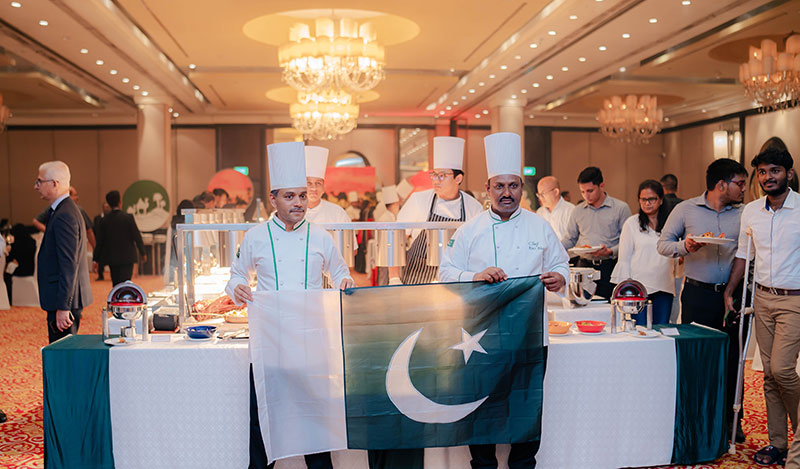
In a grand celebration of unity and tradition, Cinnamon Lakeside Colombo hosted an exclusive and elegant Iftar dinner at the prestigious King’s Court. This remarkable evening, hosted by Nazoomi Azhar, General Manager of Cinnamon Lakeside Colombo, brought together a distinguished gathering of ambassadors, key figures, top corporate executives, and esteemed members of the media.
The event showcased a spectacular array of culinary delights, with a highlight being the masterpieces crafted by renowned Pakistani Chef Riaz Bhatti. His exquisite creations, alongside an extensive selection of traditional and contemporary delicacies of Pakistani dishes, left guests in awe of the lavish spread and exceptional flavors.
Among the standout dishes of the evening were the rich and aromatic Mutton Raghni Josh, the flavorful Mutton Shahi Qorma, and the perfectly spiced Peshawari Beef Chapli Kabab. Guests also delighted in the Lahori Chicken Tikka Boti and the indulgent Chicken Peshawari Karahi, which added a taste of authenticity to the menu. The Iftar spread was further complemented by traditional desserts such as Gulab Jamun, Shahi Tukda, and Ras Malai, providing a sweet ending to the feast.
The atmosphere was one of warmth and hospitality, reflecting the spirit of Ramadan while offering a truly memorable experience. Guests were highly impressed with the impeccable service and the thoughtfully curated menu, making this Iftar dinner a standout occasion in Colombo’s social calendar.
Cinnamon Lakeside Colombo, under the leadership of Nazoomi Azhar, continues to set the benchmark for luxury hospitality, delivering unforgettable experiences through its commitment to excellence.
Life style
Women -building blocks in shaping history of Turkiye
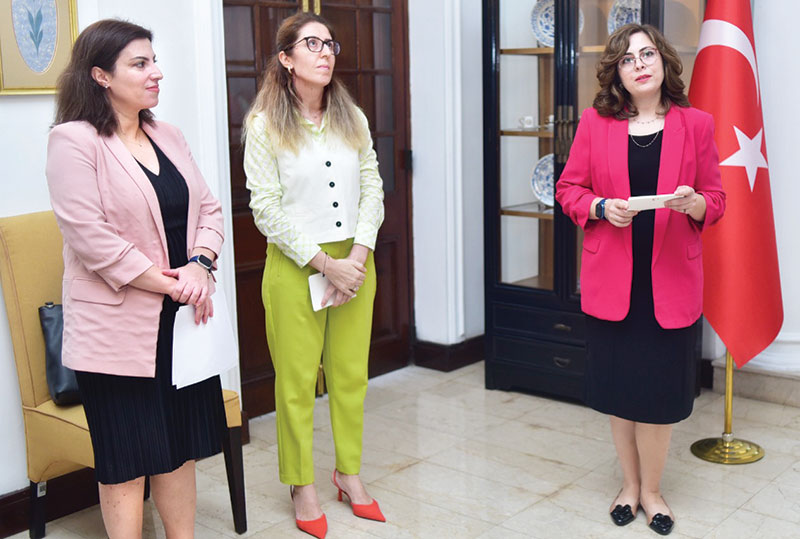
 In the Republic of Turkiye women have been one of the building blocks in shaping Turkiye for centuries. However, especially since the founding of the Republic, Turkiye has been one of the leading countries in the world, especially in terms of the political visibility of women. Women were given the right to vote long before women were given political rights in many democratic and modern countries.
In the Republic of Turkiye women have been one of the building blocks in shaping Turkiye for centuries. However, especially since the founding of the Republic, Turkiye has been one of the leading countries in the world, especially in terms of the political visibility of women. Women were given the right to vote long before women were given political rights in many democratic and modern countries.
Turkish women are known for their unwavering determination and resilience. They exhibit remarkable dedication and courage in pursuing their goals and challenge injustice. Their hard work and perseverence contribute to their advancement of society. These statements were expressed by the Deputy Chief of Mission of Turkiye M/S Merve Goozde Otlu at the residence of the Turkish Ambassador in Sri Lanka, on the occasion of the International Women’s Day.
This day is also important for Turkish women, who have played a vital role in shaping Turkish society, from the early days of our Republic to the present said the Deputy Chief of Mission. In her speech she also pointed out that the founder of the Republic, Mustafia Kemal Ataturk, has an important place in the hearts of all Turkish people, but his visionary leadership for women’s rights are especially precious for all women of Turkiye.
She explained “Ataturk strongly believed in women’s equality and emphasized that a modern and progressive society could only be achieved if women had equal opportunities as men’’
“Women were encouraged to participate in all areas of life, including education, work life and politics. One of the most remarkable steps Ataturk took was granting women the right to vote and as early as 1930, women were able to run for office at the local elections and in 1934 women were granted this right long before many other countries (One year after that, there were already 18 women MPs). When we look at Turkish history, we see countless inspiring women who have shaped our country, playing crucial roles achieving many milestones. These women have proved that Turkish women could achieve greatness in any field from science to business, from arts to sports, if given the opportunity, she remarked.
Turkish women have also made a significant contribution to diplomacy, a field often seen as male-dominated, she remarked.
For decades, Turkish women have been representing our country with strength and determination on the global stage. The first woman diplomat Mrs. Adile Ayda was recruited in 1932, while Ambassador Filiz Dinemen is the first woman Ambassador of Turkiye, assigned to the Hague in 1982.
Women representation has been increasing in the Ministry of Foreign Affairs, constituting almost 40% of the Ministry.
It is a personal honour for me to serve in a country like Sri Lanka, which gave the world the first female Prime Minister in history, Sirimavo Bandaranaike, she said with pride.
Her leadership showed that women can take on the highest responsibility and be a driving force not just for women but for the whole society.
The contribution of women in Turkiye in the field of Science and Technology is far reaching. She said in Turkiye, a prominent scientist who worked for NASA, whose research was instrumental in the legendary 1962 Apollo mission. She is Dihlhan Eryunt, was the recipient of the NASA Appolo Achievement Awards she said with pride.
The First Secretary, Imren Kaygisiz said Turkish women who have contributed to the development of the country and thier enduring impact on society who are still continuing to inspire strength,resilience and success of women
The Commercial Counsellor M/s Gamze Erc an also paid tribute to the founder of Modern Republic of Turkiye, Mustafa Kemal Ataturk who gave importance to education of Turkish women and leader believed that development of a nation depends on a strong education foundation.
The evening had all the trappings of glamour followed by high tea.
Life style
Sri Lanka showing strong commitment to gender equality
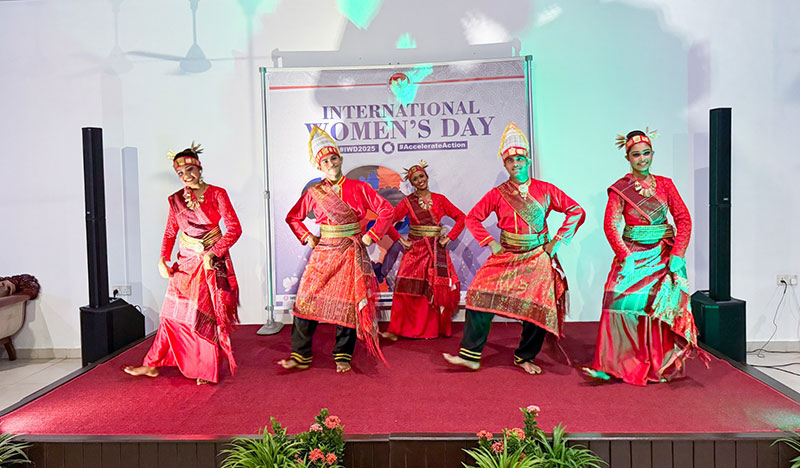
The Embassy of the Republic of Indonesia in sri Lanka hosted the International Women’s Day ceremony at thier residence.
Ambassador of Indonesia Dwi Gustina Tobing invited a large gathering of invitees including the Minister of Women and Child Affairs Saroja Savithri Paulraj who was the Chief Guest. CBL Group Managing Director Sheamalee Wickramasighe, popular musician Umaria Sinhawansa and Stephanie Siriwardena also addressed the gathering. The ambassador looking elegant was busy welcoming the guests at her residence.
An evening of camaraderie, glitz and glamour. The event featured an insightful session aimed to empower women, and served as a tribute to the commitment of women who has contributed immensely. The ambassador in her speech said by celebrating the achievements of women and amplifying their voices, we pave the way for a more inclusive and equitable society, where gender does not hinder opportunity but enriches collective experiences. Here is an excerpt from the ambassador’s speech.
A warm welcome to all of you. It is an honour to host this reception in commemoration of International Women’s Day 2025.
She said ” This year’s theme, “Accelerate Action”, is a powerful call to all of us. It underscores that equality cannot wait, and that all sectors of society must work together to speed up progress in women’s rights and empowerment.”
- CBL group managing director Sheamalee addressing the gathering
- Stephani and Umaria
Around the world, we have seen tremendous strides toward gender equality in politics, economics, and social spheres. Women are increasingly taking up leadership roles, contributing to economic growth, and shaping the future of our societies.
In Indonesia, we are proud of the progress we have made in advancing women’s participation. She said
She reiterated that 127 women were elected to parliament, making up 22.1% of the seats—the highest in our post-reform history. However, this is still below our target of 30%, which means there is room for improvement.
Our new cabinet includes 14 women, both as ministers and deputy ministers, demonstrating our commitment to gender-inclusive governance.
Beyond politics, women are the backbone of Indonesia’s economy. Micro, Small, and Medium Enterprises (MSMEs) contribute over 60% to the national GDP, and 64.5% of these businesses are managed by women.
Additionally, Indonesia ranks among the top four countries globally for female business leaders
She pointed out Sri Lanka, too, has made significant strides in women’s empowerment. When I met with Minister Saroja Savithri Paulraj last week, we discussed the progress Sri Lanka has made in increasing women’s representation in politics and the economy. From women entrepreneurs driving economic growth to initiatives supporting women in leadership, Sri Lanka is showing a strong commitment to gender equality.
Many countries have made progress in advancing women’s empowerment, yet, despite this progress, we must recognize that challenges remain. Women still face barriers to equal pay, leadership opportunities, financial inclusion, and social mobility. Gender-based violence, discrimination, and unequal access to resources continue to hinder the advancement of women in many parts of the world.
This is why collaboration is crucial. By sharing experiences, policies, and best practices, we can accelerate meaningful action to bridge the gender gap.
We must continue working together, fostering partnerships that empower women economically and socially. Indonesia is committed to strengthening collaboration with Sri Lanka and other nations to create more opportunities for women, recognizing their immense importance. Invitees were able to enjoy authentic Indonesian delicacies specially curated by the Ambassador herself.
By Zanita Careem
-
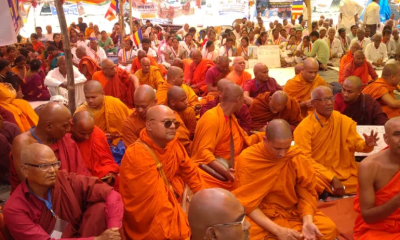
 Foreign News7 days ago
Foreign News7 days agoBuddhism’s holiest site erupts in protests over Hindu ‘control’ of shrine
-

 Features5 days ago
Features5 days agoCelebrating 25 Years of Excellence: The Silver Jubilee of SLIIT – PART I
-

 Sports1 day ago
Sports1 day agoSri Lanka’s eternal search for the elusive all-rounder
-

 Business3 days ago
Business3 days agoAIA Higher Education Scholarships Programme celebrating 30-year journey
-

 Business5 days ago
Business5 days agoCEB calls for proposals to develop two 50MW wind farm facilities in Mullikulam
-

 News2 days ago
News2 days agoGnanasara Thera urged to reveal masterminds behind Easter Sunday terror attacks
-

 Features5 days ago
Features5 days agoNotes from AKD’s Textbook
-

 News1 day ago
News1 day agoComBank crowned Global Finance Best SME Bank in Sri Lanka for 3rd successive year


